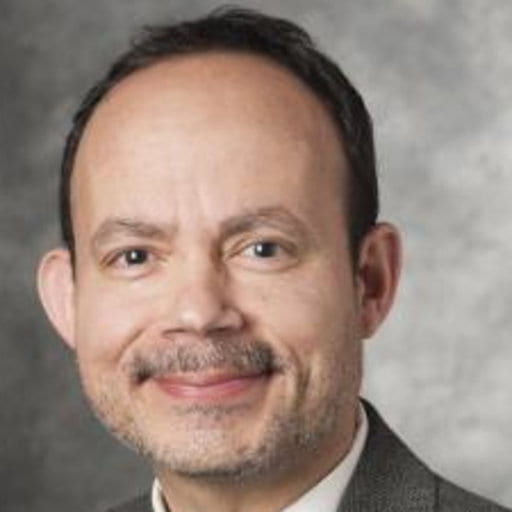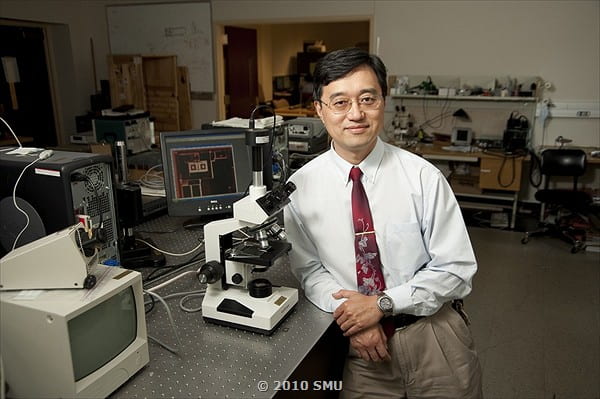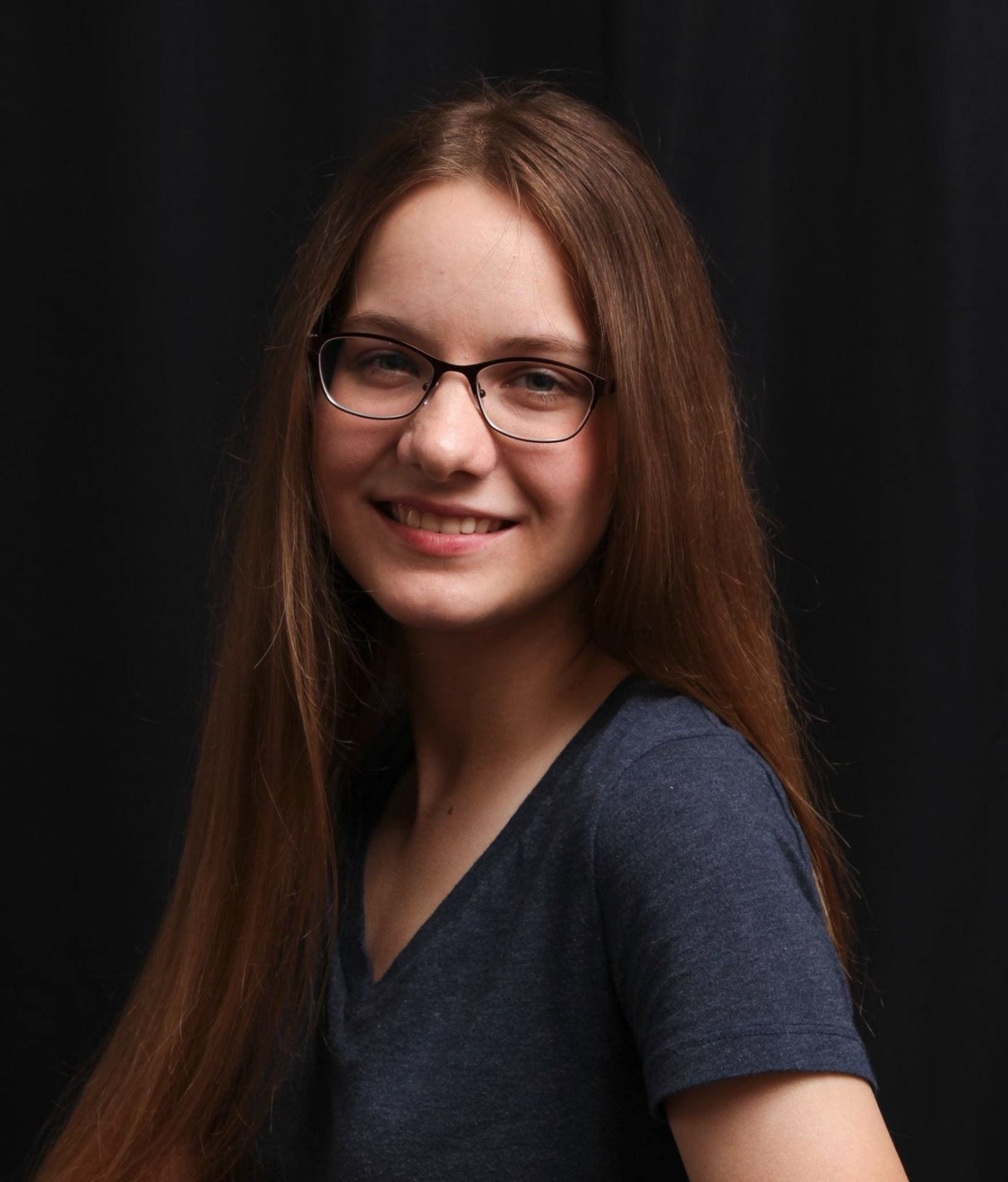
In this edition of the Friday Newsletter, we celebrate the success of a student and their forthcoming REU opportunity, the amazing scientific output of the Optoelectronics Lab, and look forward to upcoming research opportunities!
Contents
CHAIR’S WEEKLY MESSAGE
“Steeped in Research”
This issue of the Friday Physics Department Newsletter is steeped in research. There are opportunities to look at a vast body of work that has emerged from one of our laboratories. There is a look ahead to next week’s Research and Innovation Week at SMU, which is big this year – there is even at least one billboard in the Metroplex advertising it! The summer is coming fast, and with it the chance to bring new undergraduate and graduate researchers into the environment.
Research is important to SMU and it’s goals. It doesn’t always mean bench science. Research comes in many forms, and in non-STEM disciplines has additional dimensions that are less common in the STEM disciplines. You might adopt a better or broader word – “creativity” or maybe, just more generally, “scholarship.” A university is, in part, and engine for ideas. These may take the form of a piece of art, or a book, a performance, a solution to a problem, an insight into nature, a new technique … there are many ways to achieve scholarship.
Science benefits from both critical and creative thinking. It is done by people engaged in a question, motivated by an idea. driven by curiosity. It’s not always fun. It’s not always pretty. Most ideas fail. But on the path to knowing this, there is much work to be done. Navigating that path requires a decision-making process to discern reliable and unreliable information as well as the ability to think around and through challenges in that process.
Research is a process. It requires support and nurturing. This means mentorship and infrastructure and funding, whether you are a student, research staff, or faculty member. Even faculty benefit from colleagues who can bounce around ideas.
As we head into Research and Innovation Week, let’s take a moment to reflect on some of the accomplishment, the potential, and the opportunities ahead. In this edition of the Friday Newsletter, we celebrate the success of a student and their forthcoming REU opportunity, the amazing scientific output of the Optoelectronics Lab, and look forward to upcoming research opportunities!
Sincerely,

Stephen Jacob Sekula Chair, Department of Physics |
DEPARTMENT VIEWS
Summer Hamilton Research Scholar Proposals due April 8
(The following is adapted from the announcement sent by the DCII on March 7, 2022)
The Dedman College Interdisciplinary Institute (DCII) announced that the Hamilton Undergraduate Research Scholars Program will continue for the 2022-23 academic year.
They are now accepting proposals for summer Hamilton Scholars, with a deadline of Friday, April 8. A separate call will be circulated for semester or academic year 2022–23 proposals. The Hamilton Scholars Program was established to provide hands-on research experience to Dedman College undergraduate students, enabling them to collaborate with top faculty researchers and contribute to the creation of cutting-edge knowledge. The Program seeks to support projects on topics of interdisciplinary interest and impact that help Dedman College faculty members to advance their own research while simultaneously providing a meaningful learning experience for the undergraduates. Please note that student-led projects for which the faculty member’s only role is as a mentor are not eligible for Hamilton awards.
The award provides funding (a stipend) for the student for up to 29 hours of work per week during the summer (June 1 – August 3). Details of the numbers can be found in the March 2 email from the DCII. Proposals may also request additional funding for student travel to conduct research or present work at a professional conference, though available support is limited and travel awards will be made on a case-by-case basis.
Hamilton Scholars are expected to participate periodically throughout the summer in an online discussion forum, and to submit a brief reflection on their research for the DCII’s social media channels at the end of the summer. The DCII will also host a reception for Scholars and their mentors during Spring 2023.
For more information on the Hamilton Scholars Program, see the DCII website: https://bit.ly/3Kpa2W1.
Research and Innovation Week (March 28 – April 1)
Research and Innovation Week is SMU’s showcase of the exciting research being done by undergraduates, graduate students, and faculty at SMU. Members of the SMU community and the public are invited to join us to learn about the groundbreaking research being done at SMU. Research and Innovation Week 2022 will take place Monday, March 28-Friday, April 1.
You can find more information about events here: https://www.smu.edu/Moody/Events/research-and-innovation-week

The Physics Department will have one poster presented by an undergraduate researcher (Faith Fang) and three posters presented by graduate students (Michael Litke, Jasmine Liu, and Santosh Parajuli). Support our research students by visiting their posters, chatting with them about their work, and learning more about the work of students in all the other programs at SMU!
No Seminar on Monday, March 28, due to Physics Faculty Meeting
As noted on our calendar, there is no Department Speaker Series event scheduled on Monday, March 28, due to the Physics Department Faculty Meeting.
FACULTY NEWS
If you have something to share please feel free to send it along. Stories of your activities in research, the classroom, and beyond are very welcome!
Congratulations to Prof. Roberto Vega for Earning a Sam Taylor Award!
 As the Provost made public just before spring break, this year’s recipients of the Sam Taylor awards have been announced.. One of those is our own Prof. Roberto Vega!
As the Provost made public just before spring break, this year’s recipients of the Sam Taylor awards have been announced.. One of those is our own Prof. Roberto Vega!
As noted by the Provost in her announcement, “These awards provide funding for the continuing education and development of faculty members at United Methodist-related colleges and universities in Texas.” There were 16 total SMU faculty who received them this year, 9 of them in Dedman College of Humanities and Sciences.
Prof. Vega intends to use the funds to support travel to work with colleagues with whom he is collaborating on theoretical physics subjects at the interface of particle physics and cosmology.
Opto-Electronics Lab Shines as Bright as the Light it Guides with its Breakthroughs
 The Optoelectronics Lab, housed in FOSC 22, is a hotbed of activity aimed at advancing the frontier of electronics and its applications in cutting-edge experiments like the ATLAS and CMS Detectors at the Large Hadron Collider. The past year has been remarkable for the faculty, staff, and students working in the lab, which is led by Professor Jingbo Ye. As noted by Research Professor Tiankuan (Andy) Liu (shown right), a total of eight papers have been published by them in majors journals – Journal of Instrumentation (JINST), IEEE Transactions on Nuclear Science and Nuclear Instruments, and Methods in Physics Research – since January 2021. In addition, four other papers have been accepted and will be published in JINST. Prof. Ye notes that both Prof. Liu and Prof. Datao Gong, who is starting a new position at the Fermi National Accelerator Laboratory, have led the work that resulted in these papers.
The Optoelectronics Lab, housed in FOSC 22, is a hotbed of activity aimed at advancing the frontier of electronics and its applications in cutting-edge experiments like the ATLAS and CMS Detectors at the Large Hadron Collider. The past year has been remarkable for the faculty, staff, and students working in the lab, which is led by Professor Jingbo Ye. As noted by Research Professor Tiankuan (Andy) Liu (shown right), a total of eight papers have been published by them in majors journals – Journal of Instrumentation (JINST), IEEE Transactions on Nuclear Science and Nuclear Instruments, and Methods in Physics Research – since January 2021. In addition, four other papers have been accepted and will be published in JINST. Prof. Ye notes that both Prof. Liu and Prof. Datao Gong, who is starting a new position at the Fermi National Accelerator Laboratory, have led the work that resulted in these papers.
Congratulations to the lab on its successes! We provide below a list of the papers for your enjoyment.
- L. Zhang, E.M. Cruda, C-P. Chao, S-W. Chen, B. Deng, R. Francisco, D. Gong, D. Guo, S. Hou, G. Huang, X. Huang, S. Kulis, C-Y. Li, C. Liu, E.R. Liu, T. Liu, P. Moreira, J. Prinzie, H. Sun, Q. Sun, X. Sun, G. Wong, D. Yang, J. Ye, and W. Zhang, “A 20 Gbps PAM4 Data Transmitter ASIC for Particle Physics Experiments,” 2022 Journal of Instrumentation 17 C03011, https://doi.org/10.1088/1748-0221/17/03/C03011.
- H. Sun, D. Gong, C. Edwards, G. Huang, X. Huang, C. Liu, T. Liu, T. Liu, J. Olsen, Q. Sun, J. Wu, J. Ye, L. Zhang, W. Zhang, “In-pixel automatic threshold calibration for the CMS Endcap Timing Layer readout chip,” 2021 JINST 16 T09006, https://doi.org/10.1088/1748-0221/16/09/T09006.
- W. Zhang, C. Chen, D. Gong, S. Hou, G. Huang, X. Huang, C. Liu, T. Liu, H. Sun, X. Sun, P. Wang, J. Ye, and L. Zhang, “Characterization and quality control test of a gigabit cable receiver ASIC (GBCR2) for the ATLAS Inner Tracker Detector upgrade,” 2021 Journal of Instrumentation 16 P08013, https://doi.org/10.1088/1748-0221/16/08/P08013.
- B. Deng, J. Thomas, L. Zhang, E. Baker, A. Barsallo, M.L. Bleile, C. Chen, I. Cohen, E. Cruda, J. Fang, N. Feng, D. Gong, S. Hou, X. Huang, T. Lozano-Brown, C. Liu, T. Liu, A. Muhammad, L.A. Murphy, P.M. Price, J.H. Ray, C. Rhoades, A.H. Santhi, D. Sela, H. Sun, J. Wang, Z. Wang, Z. Wang, L. Xiao, W. Zhang, X. Zhao, and J. Ye, “Quality control tests of the front-end optical link components for the ATLAS Liquid Argon Calorimeter Phase-1 upgrade,” 2021 Journal of Instrumentation 16 P08006, https://doi.org/10.1088/1748-0221/16/08/P08006.
- H. Sun, D. Gong, W. Zhang, C. Edwards, G. Huang, X. Huang, C. Liu, T. Liu, T. Liu, J. Olsen, Q. Sun, J. Wu, J. Ye, L. Zhang, “Characterization of the CMS Endcap Timing Layer readout chip prototype with charge injection,” 2021 Journal of Instrumentation 16 P06038, https://doi.org/10.1088/1748-0221/16/06/P06038.
- Xing Huang, Datao Gong , Suen Hou, Guangming Huang, Chonghan Liu, Tiankuan Liu , Ming Qi, Hanhan Sun, Quan Sun , Li Zhang, Wei Zhang, Xiandong Zhao, and Jingbo Ye, “A 10-Gb/s Driver/Receiver ASIC and Optical Modules for Particle Physics Experiments,” IEEE Transactions on Nuclear Science, Vol. 68, No. 8, August 2021, https://doi.org/10.1109/TNS.2021.3086481.
- Wei Zhang, Hanhan Sun, Christopher Edwards, Datao Gong , Xing Huang, Chonghan Liu, Tiankuan Liu, Tiehui Liu , Jamieson Olsen, Quan Sun , Xiangming Sun, Jinyuan Wu , Jingbo Ye , and Li Zhang, “A Low-Power Time-to-Digital Converter for the CMS Endcap Timing Layer (ETL) Upgrade,” IEEE Transactions on Nuclear Science, Vol. 68, No. 8, August 2021, https://doi.org/10.1109/TNS.2021.3085564.
- L. Zhang, C. Chen, I. Cohen, E. Cruda, D. Gong, S. Hou, X. Hu, X. Huang, J.-H. Li, C. Liu, T. Liu, L. Murphy, T. Schwarz, H. Sun, X. Sun, J. Thomas, Z. Wang, J. Ye, W. Zhang, “Optical transceivers for event triggers in the ATLAS Phase-1 upgrade,” Nuclear Instruments and Methods in Physics Research, A 985 (2021) 164651, https://doi.org/10.1016/j.nima.2020.164651.
- H. Sun, X. Huang, C.-P. Chao, S.-W. Chen, B. Deng, D. Gong, S. Hou, G. Huang, S. Kulis, C.-Y. Li, C. Liu, T. Liu, P. Moreira, Q. Sun, J. Ye, L. Zhang, W. Zhang, “QTIA, a 2.5 or 10 Gbps 4-Channel Array Optical Receiver ASIC in a 65 nm CMOS Technology,” accepted by JINST, preprint available at https://doi.org/10.48550/arXiv.2110.12626.
- H. Sun, Q. Sun, S. Biereigel, R. Francisco, D. Gong, G. Huang, X. Huang, S. Kulis, P. Leroux, C. Liu, T. Liu, T. Liu, P. Moreira, J. Prinzie, J. Wu, J. Ye, L. Zhang, W. Zhang, “A radiation tolerant clock generator for the CMS Endcap Timing Layer readout chip,” accepted by JINST, preprint available at https://arxiv.org/abs/2110.12625.
- B. Deng et al., A 40 Gbps Optical Transceiver for Particle Physics Experiments, accepted by JINST, preprint available at https://doi.org/10.48550/arXiv.2203.06277.
- X. Huang, C. Liu, A. Deiana, B. Deng, D. Gong, L. Hasley, S. Hou,T. Liu, H. Sun, J. Ye, L. Zhang, and W. Zhang, “A prototype optical link board with redundancy design for the ATLAS liquid argon calorimeter Phase-2 upgrade,” accepted by JINST, preprint available at https://doi.org/10.48550/arXiv.2203.06275.

STAFF NEWS
The department staff continue to work on behalf of Research Operations (Michele Hill) and Academic Operations (Benisha Young). They can be contacted for assistance, or to make appointments for input and help, through the Department Main Office (FOSC 102).
STUDENT NEWS
If you have something to share please feel free to send it along. Stories of students in research, the classroom, internships or fellowships, awards, etc. are very welcome!
Amy Hermann Accepts Research Experience for Undergraduates Position at Montana State University for Summer 2022
 SMU undergraduate, Dedman Scholar, and Physics Major Amy Hermann was offered a place in several Research Experience for Undergraduates (REU) programs and has accepted an offer from Montana State University (MSU).
SMU undergraduate, Dedman Scholar, and Physics Major Amy Hermann was offered a place in several Research Experience for Undergraduates (REU) programs and has accepted an offer from Montana State University (MSU).
While our department has twin strengths in collider and astrophysics, cutting across experimental, instrumental, computational, and theoretical areas, there is much more to physics as a field than is represented in our department. In addition, it is good for undergraduates wishing to pursue research careers to build connections and gain experience outside SMU. This facilitates both constructions networks and reputation with independent institutions, but also builds a foundation for recommendation letters that come from outside SMU.
REU programs provide a means to gain these experiences. Sites funded by the NSF for these programs receive money to recruit and retain undergraduates from other universities for summer research activities (some of these can extend beyond just the summer months, but it is program-dependent). This provides living accommodations and usually a stipend to allow for meals and incidentals to be purchased while participating in the program. The programs often have many students from a diverse range of institutions, all collaborating at a single site. The site usually provides a program of courses or lectures, interwoven with long periods of independent inquiry, research, and investigation under the supervision of a mentor and their research group or colleagues.

MSU will provide a $6,000 stipend and the program lasts 10 weeks, from May 30 to August 6. In addition, MSU provides round-trip airfare to Bozeman (from within the USA), on-campus housing accommodation, and a food allowance. The choice of MSU is also notable because one of our most recent graduates, Noah Pearson (BS’21), matriculated last year in MSU’s Ph.D. Physics program.
Congratulation, Amy, on your success and the difficult choice you had to make between competing offers! The Department wishes you a wonderful summer in this program and looks forward to stories about your experiences.
ALUMNI NEWS
If you are an alum of the doctoral, masters, majors or minor programs in Physics at SMU, or have worked in our program as a post-doctoral researcher, and wish to share news with the community, please send your story to the Physics Department and we’ll work with you to get it included in a future edition.
THE BACK PAGE
Engage!
Enjoy this video, shot by Academic Operations Coordinator Benisha Young, from introductory physics this past week. It’s conservation of momentum week!

